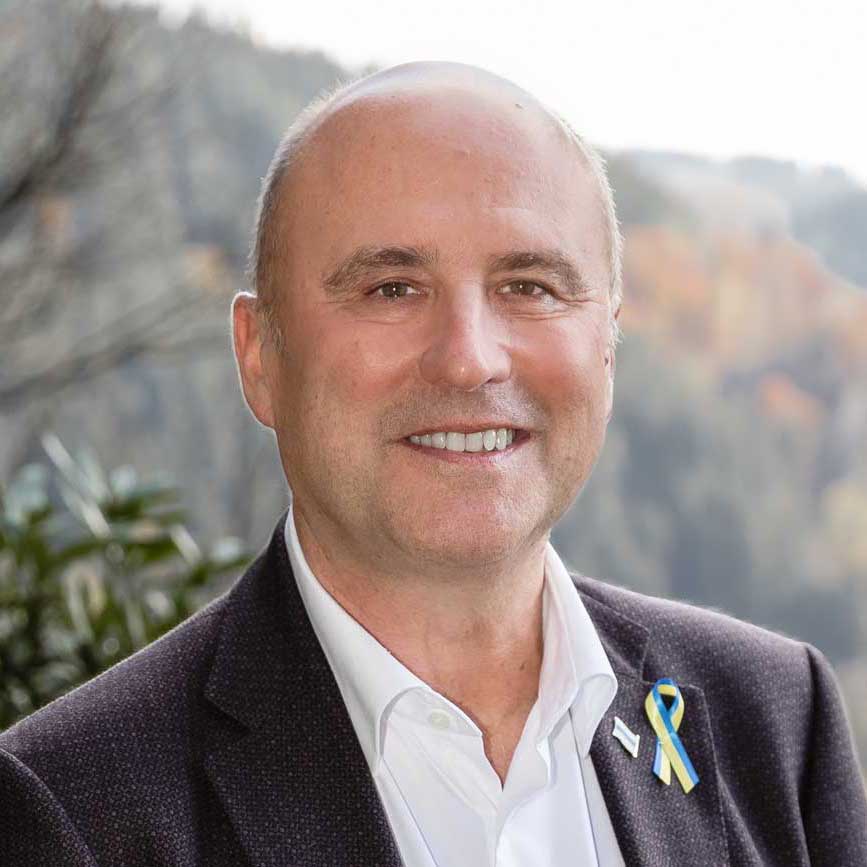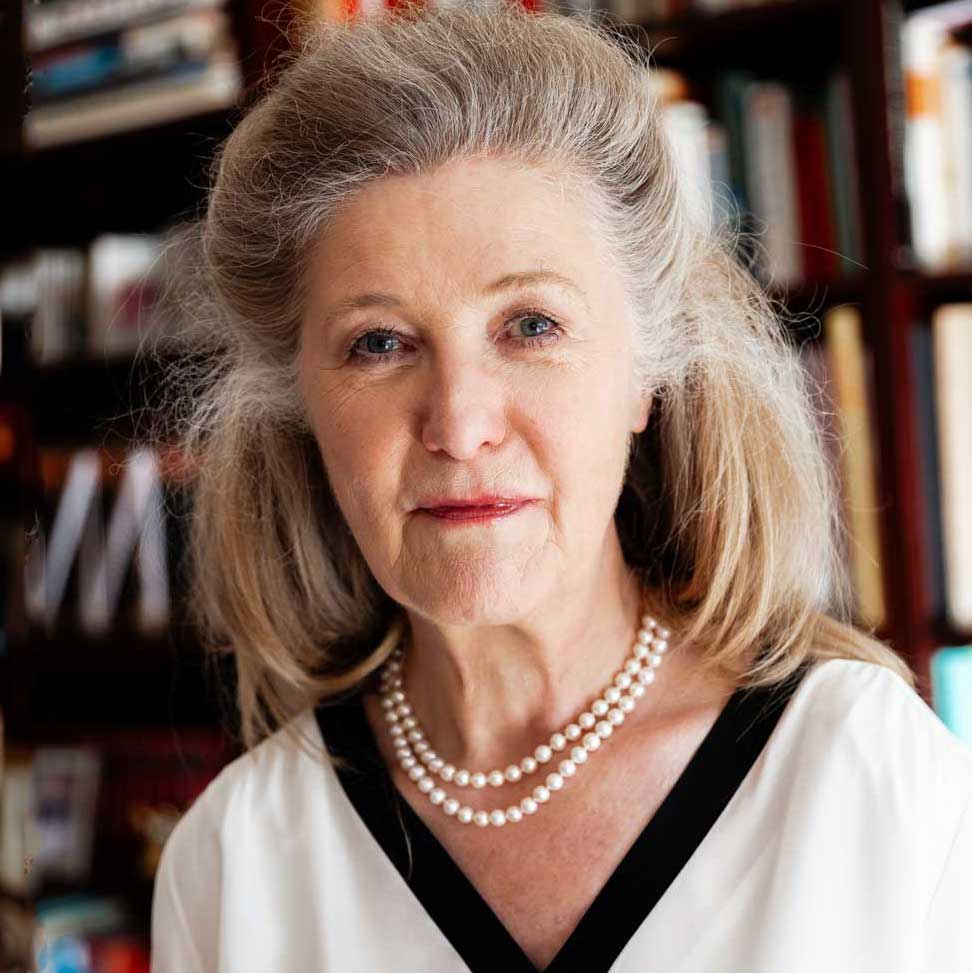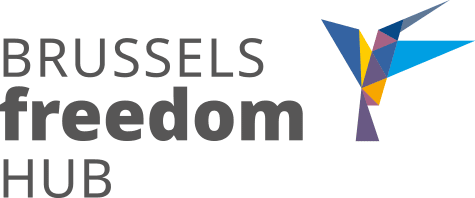
Roland Freudenstein has made a career in public administration, global democracy building and the think tank world. Born in Bonn, Germany, in 1960, he volunteered for 2 years in the German Bundeswehr during the Cold War, serving over 1 year at NATO HQ in Mons, Belgium. He has an MA in political science, economics and Japan studies from Bonn University (1988) and studied international relations in Los Angeles (1984/5). During his studies, he was supported by a Konrad Adenauer Foundation scholarship. In the 1980s, he got deeply involved with Poland’s anti-communist opposition at the time.
His first job was as a research fellow at the German Council on Foreign Relations (DGAP) in Bonn in 1989, where he assisted the organisation of the first and last German-Soviet Forum co-hosted by DGAP. Under the leadership of Prof. Karl Kaiser, he then worked on two major research projects, one on Euro-Japanese relations in a changing international environment and the other on security challenges in the new Central Europe. In the latter role, he was, from 1991-1993, the Secretary of the Steering Committee of the German-Polish Forum.
In 1993, he joined the foreign policy planning staff of the newly created Directorate General for Foreign and Security Policy in the European Commission in Brussels for 2 years, directly working with the Director General Günter Burghardt in helping to build the new foreign policy capacity of the European Commission after the Maastricht Treaty created such a competence.
In 1995, he became the Director of the Warsaw office of the Konrad Adenauer Foundation, heading a team of seven mostly locally employed colleagues, helping to develop Polish civil society, actively participating in the very dynamic Polish-German dialogue at the time, strengthening ties between centre right parties from both countries and becoming a nationally significant voice in the burgeoning Polish debate about NATO and EU membership. Fluent in Polish, he became an acknowledged figure among the pro-European liberal youth in Poland’s fast evolving political landscape in those years. He was a frequent author and commentator in Polish media, advocating for Poland to become an active and self-confident member of the EU. Roland had a regular op-ed column in the EU-focused biweekly ‘Unia i Polska’ and in the evening of 9/1, he was the only non-Pole invited to comment live on Polish state TV. In 2000 and 2001, he also spearheaded the relaunch of the Foundation’s activities in Belarus, closely working with the political opposition there.
After a stint in the Adenauer Foundation’s central office in Berlin 2002-2004 as Deputy Head of the Policy Planning Department, he moved to Brussels again in 2004 to be the Representative of the Free and Hanseatic City of Hamburg (a German federal state) to the EU. This involved heading a team of eight, lobbying for Hamburg’s political, economic and cultural interests in the EU capital.
In 2008, he became the Policy Director of the Wilfried Martens Centre for European Studies, the think tank of the European People’s Party (EPP) in Brussels which he in fact helped to build from scratch into one of Brussels’ leading think tanks. In particular, he initiated and/or carried out research into populist and nationalist parties, early efforts to counter Russian disinfo and propaganda, support for Ukraine and a robust Western defence against the new Chinese imperialism. He was also the chief drafter of the EPP’s 2012 platform in a coordination process among member parties and stakeholders, spanning several years. He played a key role behind the scenes in monitoring Viktor Orbán’s political radicalisation by informing the EPP leadership about internal developments in FIDESZ that ultimately led to this party leaving the EPP in 2021.
From 2021 to 2024, Roland was Vice President of GLOBSEC and Head of GLOBSEC Brussels, representing the constructive voice of Central Europe in Brussels on behalf of Central Europe’s leading think tank and convener.
In 2024, he founded the Brussels Freedom Hub, an advocacy platform for a resilient West, strong Transatlantic ties and the global solidarity of democrats in trying times. Since then, he is also the Brussels Office Director of the Free Russia Foundation, helping to empower pro-democracy Russians in exile and contributing to the struggle for a post-Putin Russia that ends imperialism and embraces democracy and a truly federalist structure.
Roland has published scores of articles about European integration, international security, the Transatlantic alliance, Central and Eastern Europe, relations with China and global democracy support (for some of his best texts, see ‘Roland’s publications’ below). Besides his native German, he is fluent in English, French and Polish and knows some basic Spanish, Russian, Slovenian and Norwegian.
Connect with me:

Dr. Gerlinde Niehus can draw on more than 25 years of leadership, management and innovation experience in multilateral diplomacy, gained in particular at NATO and the European Commission. She is a leader with outstanding knowledge of international security policy and international cooperation. With her passion for promoting peace and democracy, Gerlinde has driven multiple reform processes. She has successfully chaired high-level NATO committees, led international teams from more than 30 countries, and connected NATO with people around the world.
Between 2019 and 2024, Gerlinde has been working at NATO Headquarters as Deputy Director for Security Cooperation with NATO Partner Countries. In addition to establishing this new directorate, she managed NATO’s practical cooperation with currently 35 partner countries worldwide. These range, for example, from Ukraine and Georgia, via Serbia and Bosnia Herzegovina, to Jordan, Iraq, or Colombia. The main goals of the cooperation are crisis prevention and better empowerment of the partners through reforms in the security and defence sector. In essence, the partner countries should thus contribute more to securing peace and security, be it nationally or in international cooperation.
In previous positions at NATO, Gerlinde reformed and managed NATO’s Communications Services (2003-2012), where she was responsible for all NATO publications and the Alliance’s image building, and NATO’s Public Relations Services (2012-2019). In the former role, Gerlinde was, as Editor in Chief, responsible for all NATO print and online publications, including the NATO website www.nato.int, the journal NATO Review or the NATO Handbook. In the latter function, she guided NATO’s public diplomacy engagements with audiences in all NATO nations and partners countries across the globe, including the NATO Information Offices in Moscow and Kiev. Her work also comprised intensive cooperation with universities and think tanks, as well as a variety of lectures, seminars and discussions with students.
Gerlinde Niehus started her professional life as a TV and radio editor for public broadcasters in Germany (WDR and Deutschlandfunk). She then moved to a German political foundation, focusing on international relations, development cooperation and a growing range of education and training programmes with partners in Central and Eastern Europe and the New Independent States (NIS). This work brought her to the European Commission in Brussels, where she built up the information and communications programme EU – NIS, and subsequently developed a communications strategy for the European Commission’s Directorate General Information Society.
With a background in development cooperation, she also led in 1996/97 the European Liaison Office of the then Gesellschaft für Technische Zusammenarbeit (GTZ), the official German development cooperation institution.
Gerlinde Niehus holds a Ph.D. in International Relations (“summa cum laude”) from Muenster University, Germany. In addition to her doctoral thesis on Spanish Foreign Policy, and her work as editor in chief for NATO, she has published numerous academic articles on international and security matters, as well as on NATO’s evolving policies.
Gerlinde is a member of Women in International Security (WIIS), as well as alumni of the London Business School and the Friedrich-Naumann-Foundation.
Connect with me:
